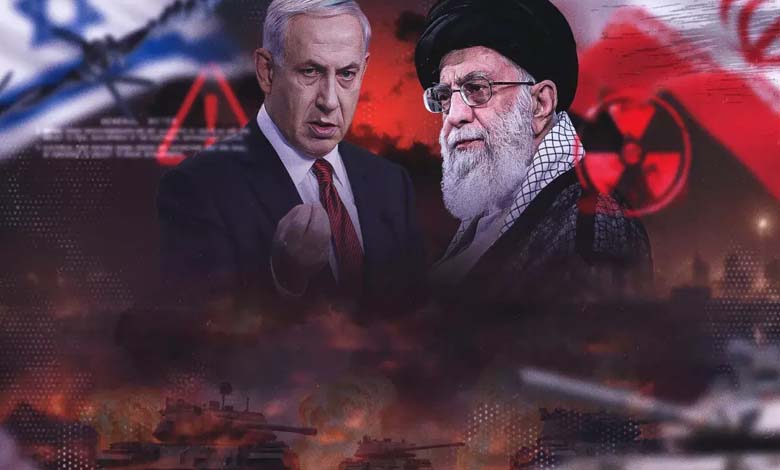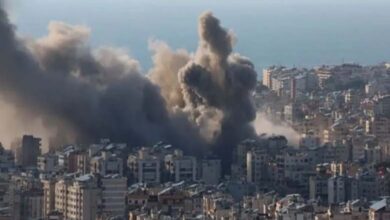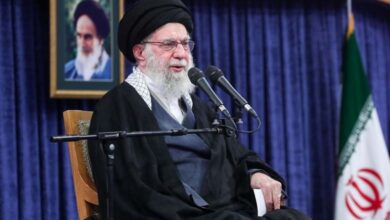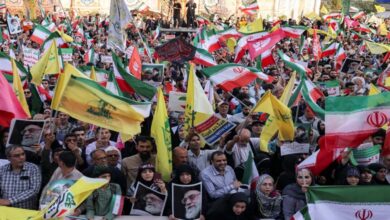Mutual escalation between Iran and Israel despite calls for de-escalation

Iran and Israel exchanged new attacks in the early hours of Saturday, despite growing international appeals for calm. Tehran announced it would not negotiate its nuclear program under threat, while Israel claimed its strikes have delayed Iran’s ability to develop a nuclear weapon by at least two to three years.
-
Hypersonic Missiles and Strikes on Nuclear Facilities: Day Six Between Iran and Israel
-
Iran and Israel: Cross-Strikes… Is There Still a Window for Nuclear Negotiations?
According to Fars News Agency, Israel targeted the nuclear facility in Isfahan—one of the largest in Iran—adding that no hazardous materials had leaked as a result. Iranian media also reported an attack on a building in Qom, where a 16-year-old boy was reportedly killed and two others injured.
Later on Friday, Israeli Defense Minister Yisrael Katz confirmed that a senior commander in the Quds Force—the external operations arm of Iran’s Islamic Revolutionary Guard Corps—was killed in a strike on an apartment in Qom. The commander was identified as Saeed Izadi, head of the Quds Force’s Palestinian unit. The Israeli military stated it had launched a series of strikes on missile storage and launch sites across Iran.
-
Following Approval from Iran and Israel: Ceasefire Negotiations in Lebanon Enter Final Stages
-
No Ceasefire in Gaza until De-escalation between Iran and Israel
Shortly after 2:30 a.m. local time, Israel’s military warned of incoming ballistic missiles from Iran, prompting sirens to sound in central parts of the country, including Tel Aviv, and in the occupied West Bank. Missile interceptions were seen in the skies over Tel Aviv, with loud explosions reported, as Israeli air defenses responded.
Additional alerts were triggered in southern Israel. An Israeli military official reported that Iran had fired five ballistic missiles, though there were no immediate signs of casualties or significant damage. Emergency services released images showing a fire on the roof of a residential building, caused by debris from an intercepted missile.
-
Troubles and Crises: International Economy Affected by Iran and Israel Events
-
One Week into War: Iran Expands Its Strikes on Israel with the Largest Rocket Barrage in 48 Hours
Israel launched its offensive against Iran on June 13, claiming Tehran was nearing nuclear weapon capability. Iran, which insists its nuclear program is peaceful, responded with missile and drone attacks. Israel is widely believed to possess nuclear weapons, though it neither confirms nor denies this.
The U.S.-based Human Rights Activists News Agency (HRANA) reported that 639 people had been killed in Iran due to Israeli airstrikes, including senior military leaders and nuclear scientists.
-
Iran-Israel Escalation: Mass Launch of Evacuation and Withdrawal Phases
-
Anticipation and Preparations in Israel for a Double Attack from Iran and Yemen
On Saturday, police in Iran’s Qom Province announced the arrest of 22 individuals suspected of spying for Israel. According to Fars News, they were accused of links with Israeli intelligence and spreading public unrest since the strikes began on June 13.
In a separate statement, the police chief of western Tehran said that 24 individuals had been arrested for allegedly spying for Israel both physically and online, aiming to destabilize public perception of the Islamic Republic.
Tasnim News Agency reported that a European national had also been arrested as an alleged Israeli spy, though no identity or date of arrest was provided.
-
Israel’s Strikes on Iranian Nuclear Facilities: Conflicting Assessments and Unclear Outcomes
-
Israel Vows Retaliation as Iran Issues Threats — Red Lines Crossed and Strikes to Continue
Israeli authorities claimed that 24 civilians had been killed in Iran’s missile strikes. No independent verification of casualties has yet been possible from either side.
Israeli Foreign Minister Gideon Saar told Germany’s Bild newspaper that the attacks on hundreds of Iranian military and nuclear sites, which resulted in the deaths of key personnel, significantly delayed Iran’s nuclear ambitions. He stated that eliminating the leaders of Iran’s nuclear militarization program was critical and emphasized that Israel would not rest until the threat was entirely neutralized.
-
Is an Attack Imminent? US Newspaper Reveals Israeli and Iranian Preparations
-
In Iran’s Eid Sermon: The U.S. and Israel Present with Warnings
U.S. President Donald Trump said Friday that he believes Iran could acquire a nuclear weapon “within weeks, or certainly within months.” Speaking to reporters at Morristown Airport in New Jersey, he stated, “We cannot allow that to happen.”
He added that Director of National Intelligence Tulsi Gabbard was mistaken when she claimed there was no evidence Iran was pursuing a nuclear weapons program.
Iran has repeatedly targeted Tel Aviv, a metropolitan area of around four million people and Israel’s economic and business hub, which also hosts key military assets.
-
“Surprise” in Israeli Attack on Iran: Advance Warning of Date and Targets?
-
Israel Launches Massive Strike on Nuclear and Missile Facilities in Iran
Israel announced on Friday that it had bombed dozens of military targets, including missile production sites, a research facility in Tehran allegedly involved in nuclear weapons development, and military installations in central and western Iran.
Iranian Foreign Minister Abbas Araghchi stated that there would be no negotiations with the United States “until Israeli aggression stops.” However, he arrived in Geneva on Friday for talks with European foreign ministers, as Europe hopes to revive the path of diplomacy.
Trump said he would take up to two weeks to decide whether the U.S. would join the conflict on Israel’s side, claiming that was sufficient time “to see if people come to their senses.”
-
Israel and Iran: Everything You Need to Know About The Fire Saturday
-
Leaks Reveal Israeli Preparations to Strike Iran and U.S. Concerns
He also suggested it was unlikely he would pressure Israel to scale back its airstrikes to allow negotiations to continue. “That’s a very tough ask right now. If you’re the winning side, it’s harder than if you’re the losing side. But we’re ready, willing, and able. We’ve spoken to Iran, and we’ll see what happens.”
Talks in Geneva yielded no signs of progress, and Trump voiced skepticism about the negotiators’ ability to reach a ceasefire. “Iran doesn’t want to talk to Europe. They want to talk to us. Europe won’t be able to help in this,” he said.
A cable from the U.S. State Department revealed that hundreds of American citizens had fled Iran since the start of the aerial conflict.
-
Details of Iran’s “Recruitment” of an Israeli and His Girlfriend to Carry Out an “Assassination” Operation
-
In Case of an Israeli Attack: Source Discusses Iran’s Plan and Target Bank
Israeli Ambassador to the United Nations Danny Danon told the Security Council on Friday that Israel would not stop its attacks “until the Iranian nuclear threat is eliminated.”
Meanwhile, Iranian Ambassador Amir Saeid Iravani urged the Security Council to act, expressing concern over reports that the U.S. might join the war. Russia and China called for an immediate de-escalation.
A senior Iranian official stated that Iran was ready to discuss limits on uranium enrichment but would reject any proposal that prohibits enrichment entirely, “especially now, amid ongoing Israeli strikes.”
-
Iranian Missiles on Israel: Launch and Interception Costs
-
Iran’s Secret Document Ignites a Dispute within the Israeli Military and Netanyahu’s Office
-
Washington Post reveals how Lebanese pay the price for Iranian threats and ongoing Hezbollah-Israel clashes
-
Will Iran Abandon Its Revenge Against Israel in Exchange for a Gaza Ceasefire?
-
Leaks from the Secret Meeting: Iran Refuses to Support Hezbollah and its Iraqi Militias Against Israel
-
Intense Cyber War Between Israel and Iran












